Photo: KNRM
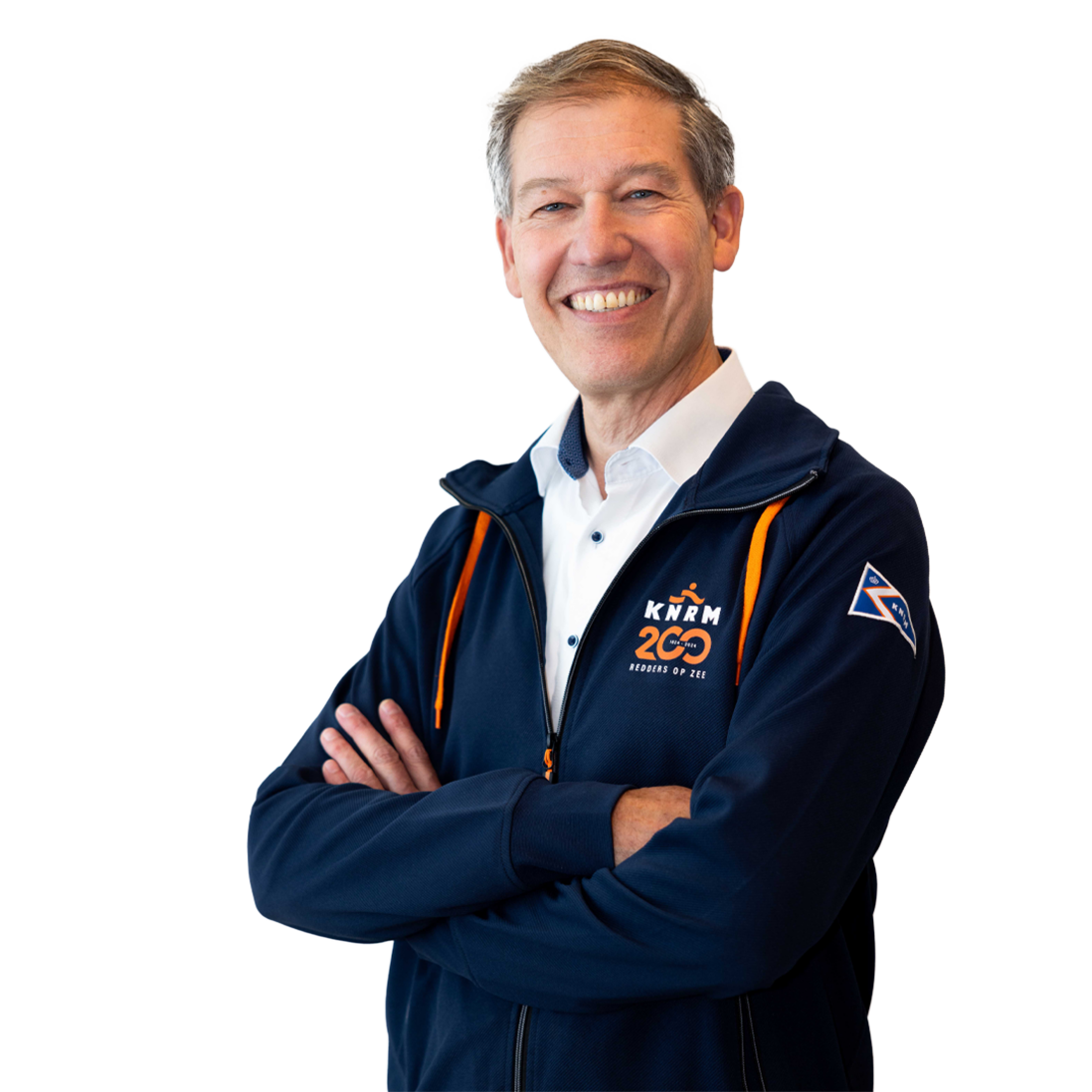
Royal Dutch Rescue Society (KNRM)
Photo: KNRM
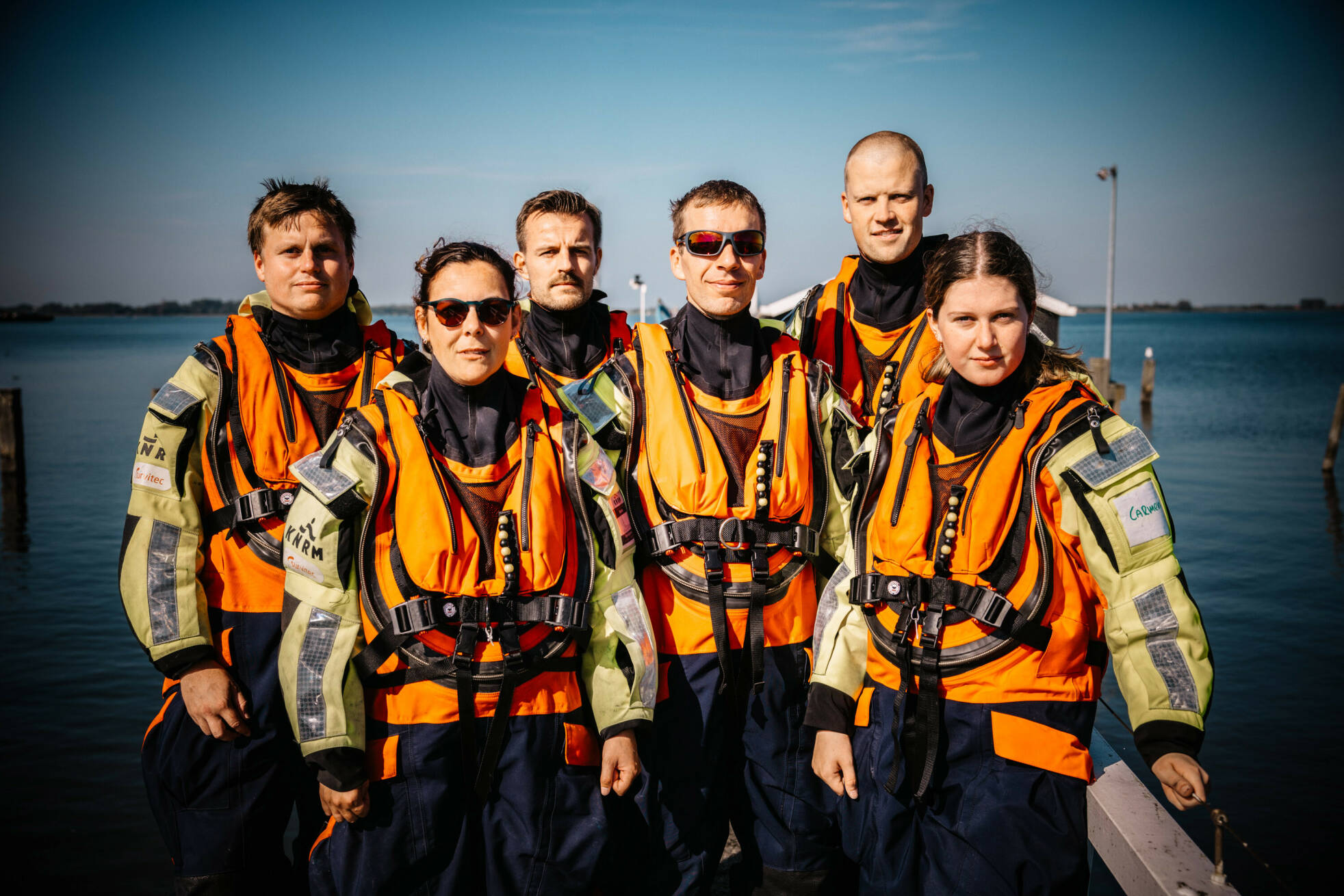
What I always emphasise, both inside and outside KNRM, is that safety must always come first. Our volunteers must not only be in top shape physically, but also mentally. After all, we sometimes go through traumatic situations. It is crucial that we continue to communicate within our team and keep a close eye on each other. We know each other so well that we often sense when someone reacts differently than normal.
The strength of KNRM lies in the team spirit. We trust each other blindly. And that is perhaps the most important aspect of a good start: knowing that you don't have to do it alone, but that you can always count on your team. Out together, home together.
“WE TRUST EACH OTHER BLINDLY. AND THAT IS PERHAPS THE MOST IMPORTANT ASPECT OF A GOOD START: KNOWING THAT YOU DON'T HAVE TO DO IT ALONE"
Photo: KNRM
Of course, not everything always goes according to plan. A bad start can have a snowball effect; you notice that if one thing goes wrong, several things often follow. At such times, sometimes you just have to stop, take a breath and regroup. Otherwise, you risk the situation getting out of hand, and in our field that is life-threatening.
In my experience, mistakes often arise from a lack of preparation. Whether in our own work or in pleasure boating, many incidents could have been avoided. People sometimes forget to refuel their boat or simply service their engine. Then we get another call to help. Things like that are unnecessary, but it is still our job to get them home safely.
For me, every successful rescue starts with good preparation. You have to know exactly what you are going to do, have the right tools and be mentally sharp. Our actions often take place in situations where we have to improvise. So it is important to practice so that you do not get distracted by uncertainties or unexpected problems. If you are well prepared, you can improvise and react to anything that comes your way.
We therefore train our volunteers intensively. For instance, we practise escaping from a helicopter underwater and do capsize exercises. The great thing about these exercises is that when things really go wrong, your body automatically falls back on what you have learned. That makes the difference between success and failure.
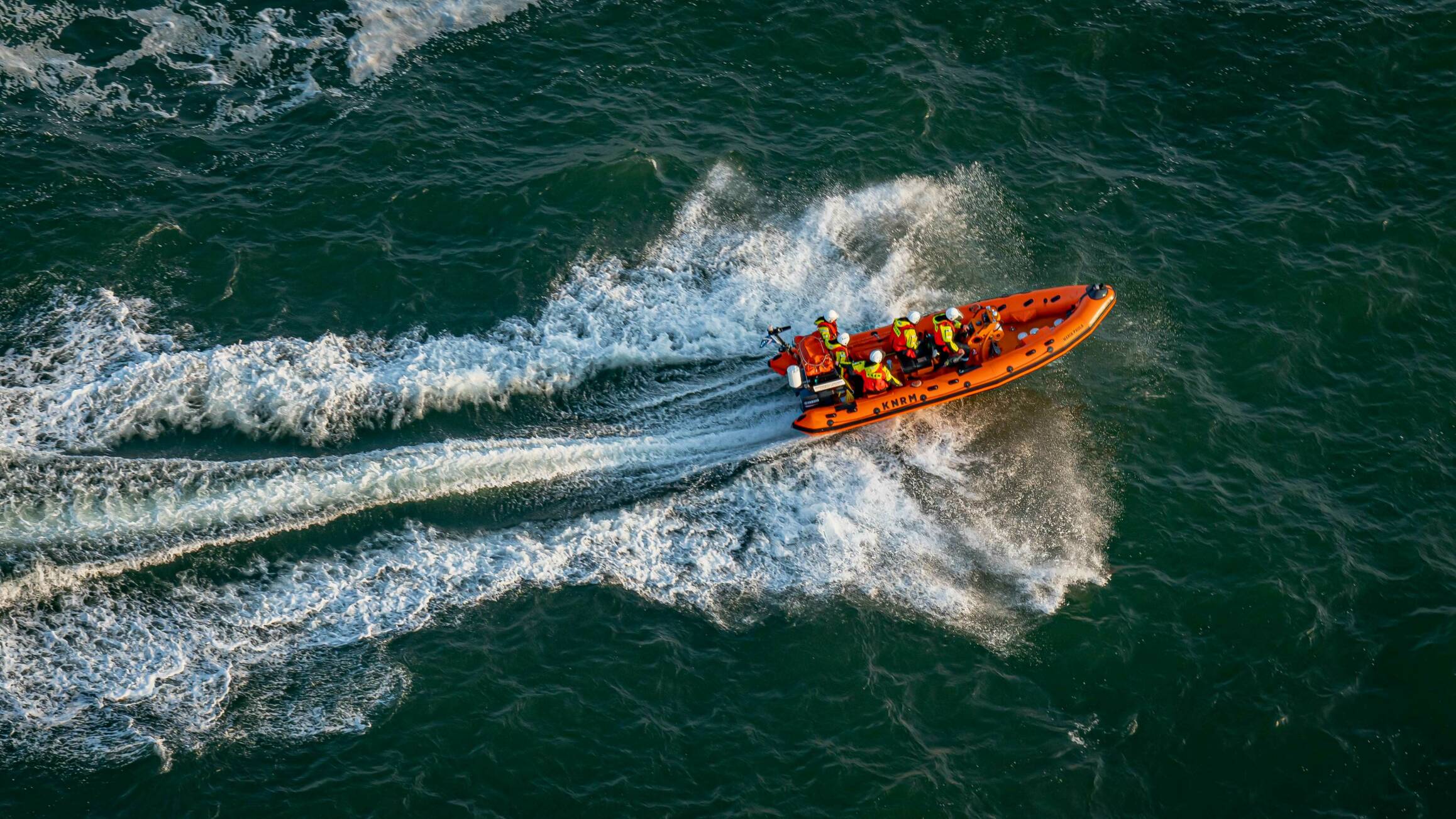
Of course, a lot has changed in those 200 years, especially in the technical field. Where we once used rowing boats, we now operate motor- and jet-powered lifeboats. Our volunteers wear survival suits instead of the cork life jackets that used to be used. Everything is safer, better organised and communication is smoother than ever.
But at its core, the human aspect has remained the same. Volunteers remain the backbone of our organisation. They go out while others seek a safe haven and that requires an incredible team spirit. We must be able to rely on each other and know our material inside out.
Photo: KNRM
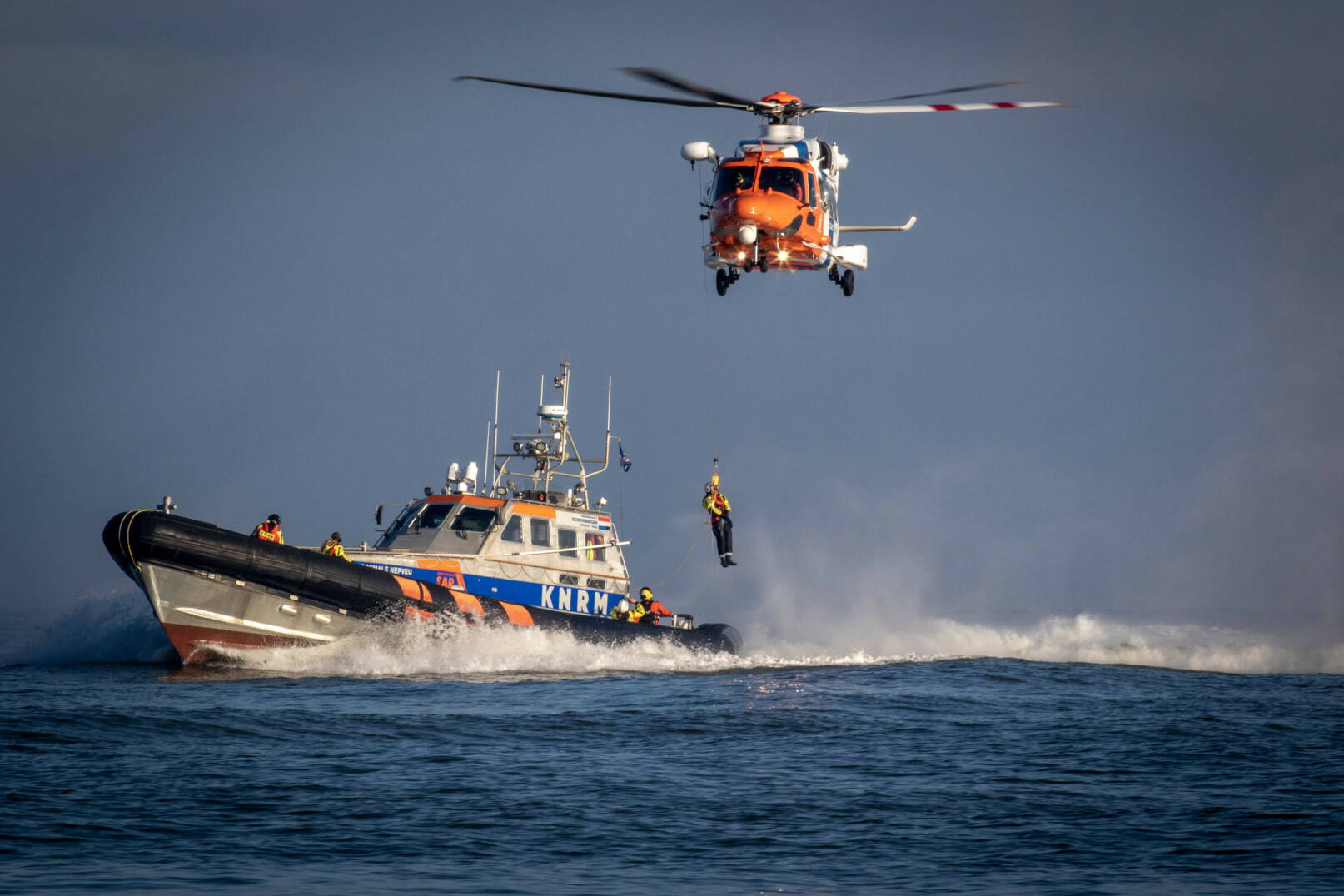
“FOR ME, EVERY SUCCESSFUL RESCUE OPERATION STARTS WITH GOOD PREPARATION. YOU HAVE TO KNOW EXACTLY WHAT YOU ARE GOING TO DO, HAVE THE RIGHT TOOLS AND BE MENTALLY SHARP"
There is something special about working for an organisation that has been around for 200 years. Today, the Royal Dutch Rescue Society (KNRM) is still about the same core values as then: volunteers who put their heart and soul into saving others, without expecting anything in return. The idea that we set sail without even knowing who we are helping, and that the rescued do not have to pay anything, makes our work unique.
What I have always found impressive is that, as KNRM, we do not send a bill. Our work is entirely funded by donors, foundations and companies, without a cent of government support. It feels special to be part of a system that has functioned this way for two centuries.
Photo: KNRM
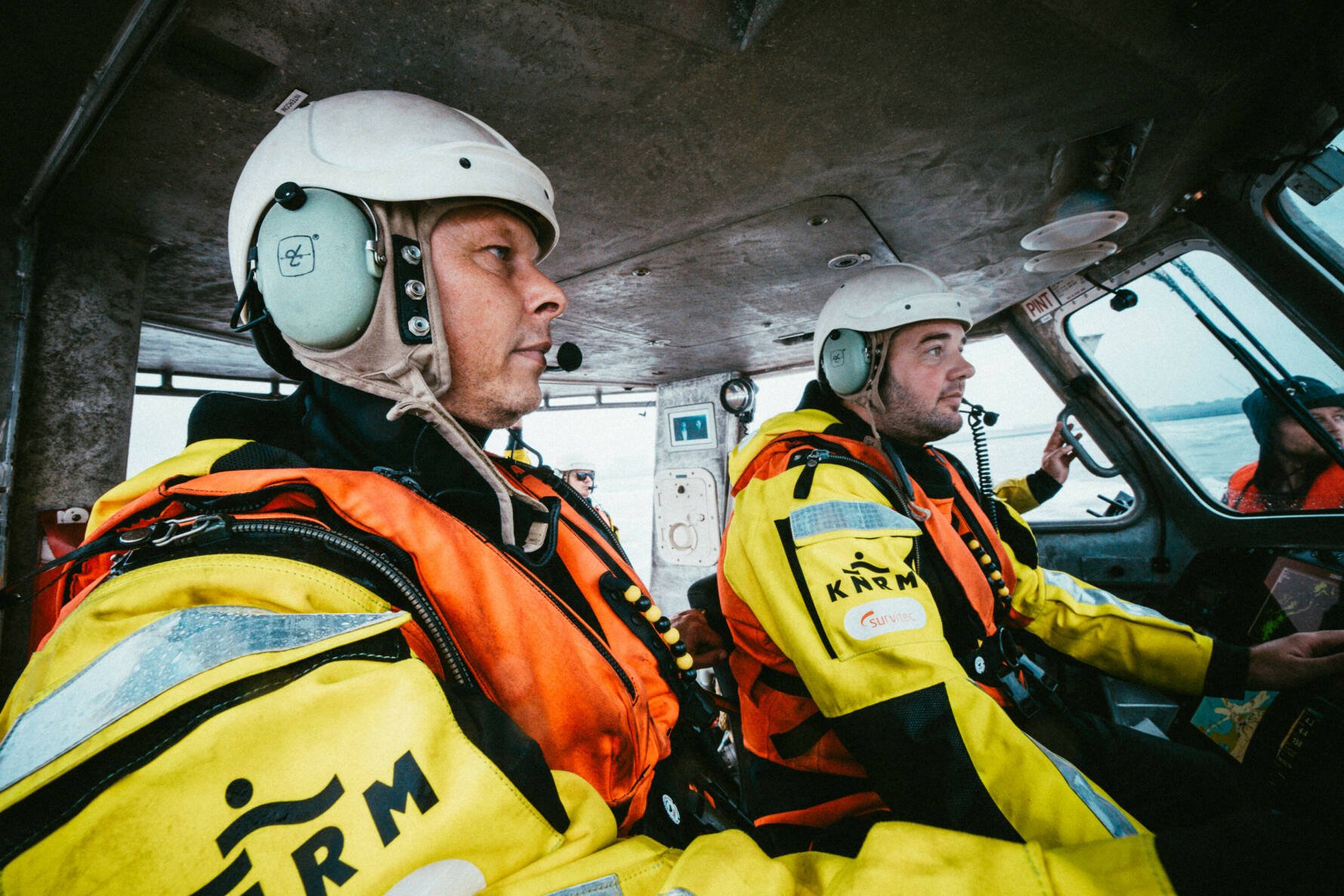
at Sea!
Join Work Safely at Sea and help us spread the important message about safety further. We are looking for companies, ships, and workers to share their experiences. Your story can inspire others and make them aware of the crucial role safety plays in our work. Whether you have a success story or a lesson learned from a near miss, your contribution can make a difference. Fill in the form and join our mission to make the sea a safer place to work for everyone

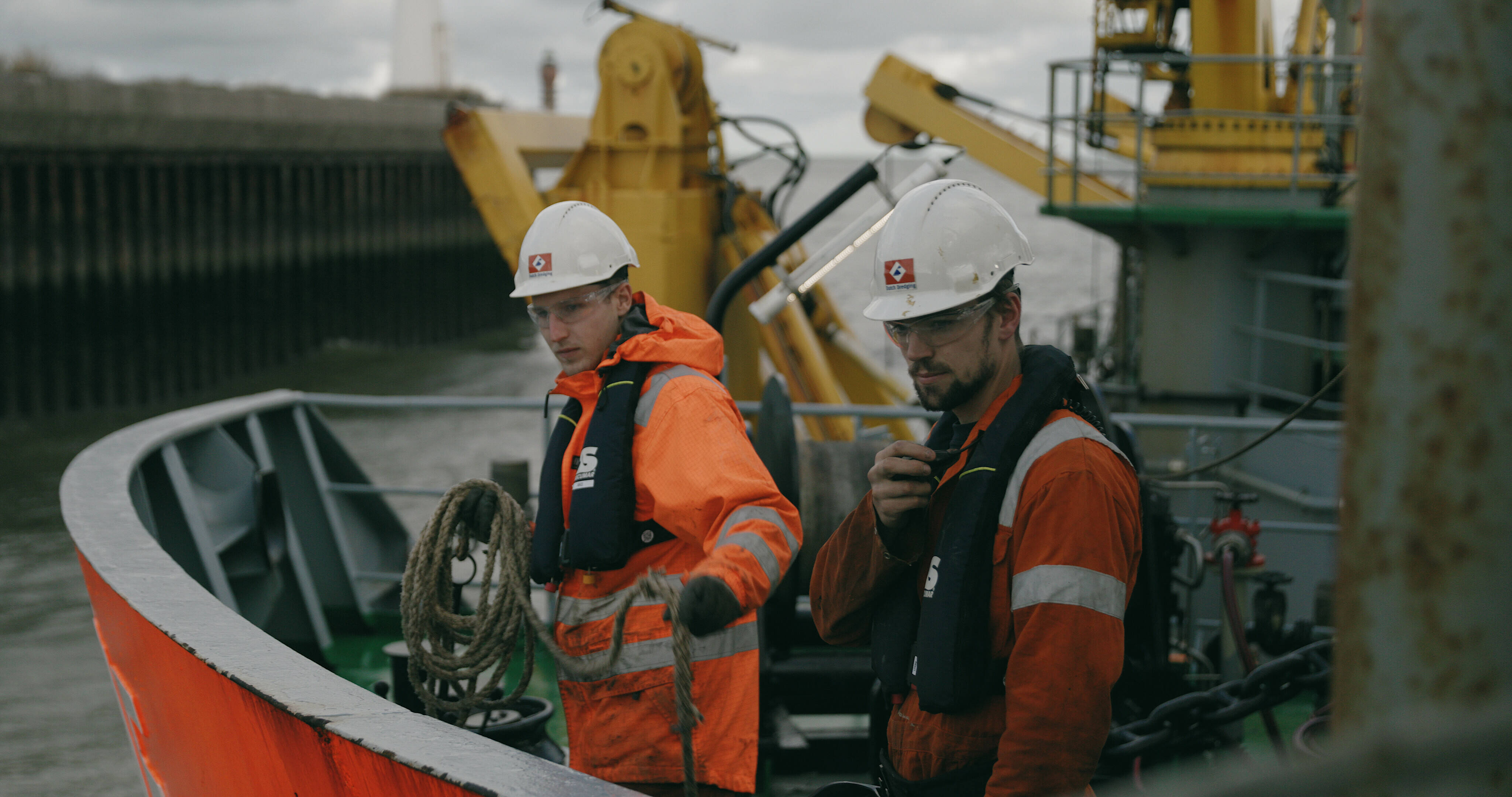
Photo: KNRM
Royal Dutch Rescue Society (KNRM)
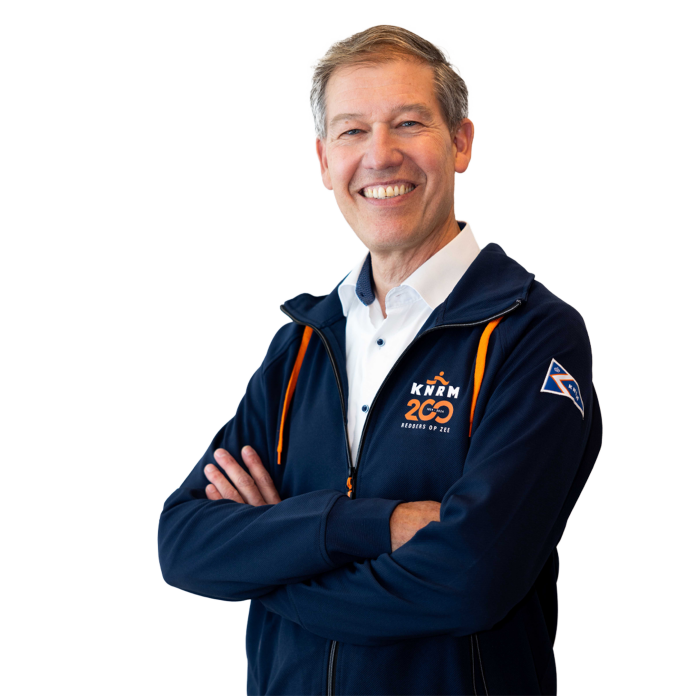
Photo: KNRM
Photo: KNRM
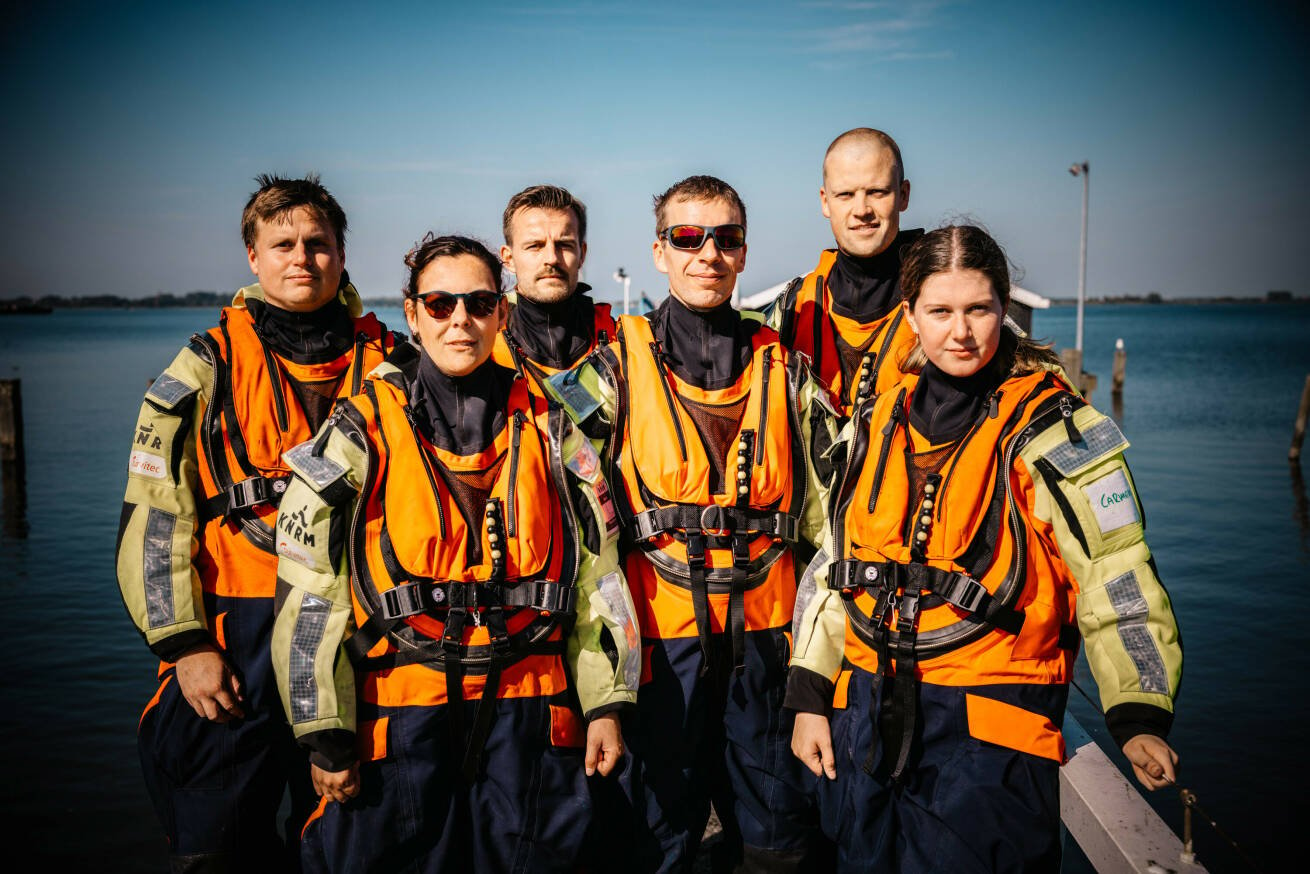
What I always emphasise, both inside and outside KNRM, is that safety must always come first. Our volunteers must not only be in top shape physically, but also mentally. After all, we sometimes go through traumatic situations. It is crucial that we continue to communicate within our team and keep a close eye on each other. We know each other so well that we often sense when someone reacts differently than normal.
The strength of KNRM lies in the team spirit. We trust each other blindly. And that is perhaps the most important aspect of a good start: knowing that you don't have to do it alone, but that you can always count on your team. Out together, home together.
“WE TRUST EACH OTHER BLINDLY. AND THAT IS PERHAPS THE MOST IMPORTANT ASPECT OF A GOOD START: KNOWING THAT YOU DON'T HAVE TO DO IT ALONE"
Of course, not everything always goes according to plan. A bad start can have a snowball effect; you notice that if one thing goes wrong, several things often follow. At such times, sometimes you just have to stop, take a breath and regroup. Otherwise, you risk the situation getting out of hand, and in our field that is life-threatening.
In my experience, mistakes often arise from a lack of preparation. Whether in our own work or in pleasure boating, many incidents could have been avoided. People sometimes forget to refuel their boat or simply service their engine. Then we get another call to help. Things like that are unnecessary, but it is still our job to get them home safely.
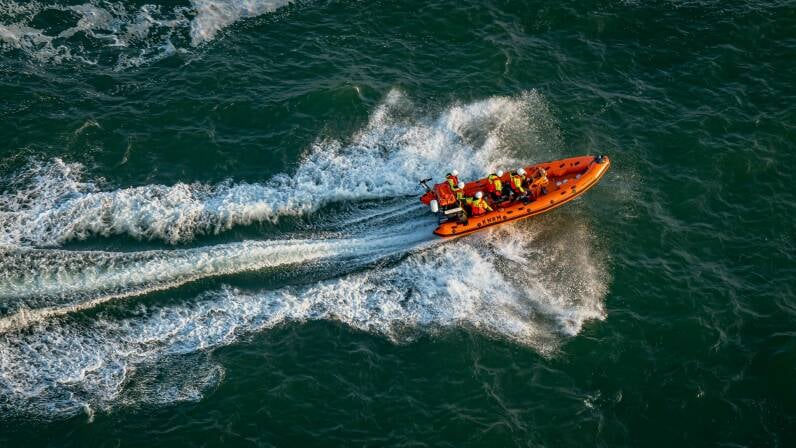
Photo: KNRM
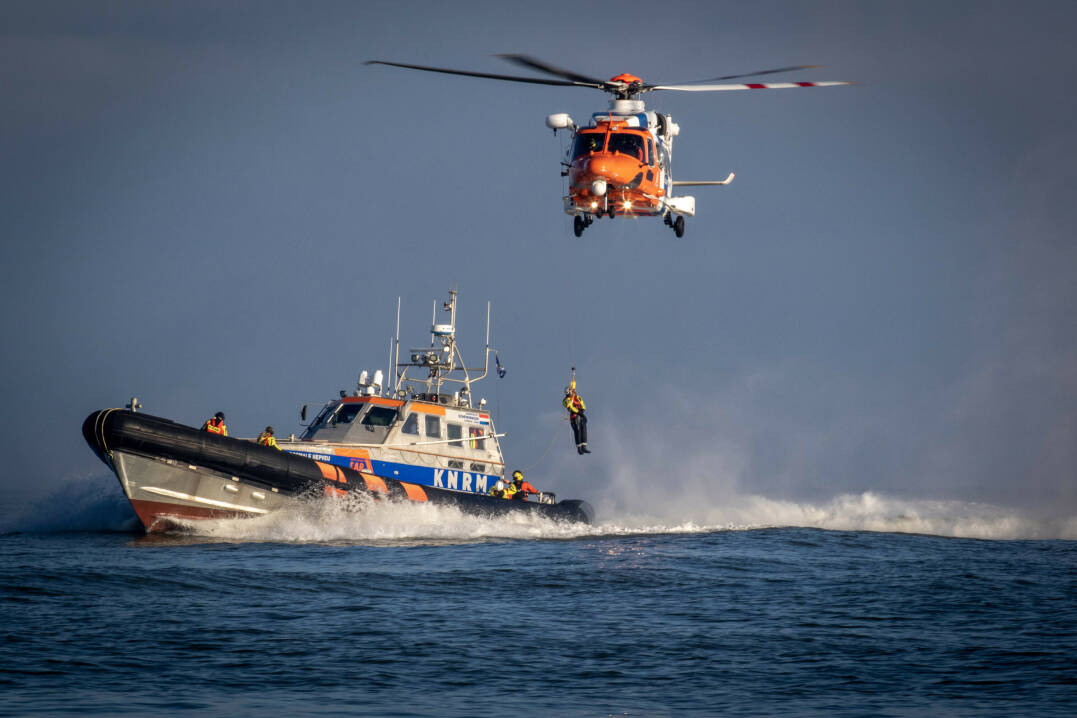
“FOR ME, EVERY SUCCESSFUL RESCUE OPERATION STARTS WITH GOOD PREPARATION. YOU HAVE TO KNOW EXACTLY WHAT YOU ARE GOING TO DO, HAVE THE RIGHT TOOLS AND BE MENTALLY SHARP"
Of course, a lot has changed in those 200 years, especially in the technical field. Where we once used rowing boats, we now operate motor- and jet-powered lifeboats. Our volunteers wear survival suits instead of the cork life jackets that used to be used. Everything is safer, better organised and communication is smoother than ever.
But at its core, the human aspect has remained the same. Volunteers remain the backbone of our organisation. They go out while others seek a safe haven and that requires an incredible team spirit. We must be able to rely on each other and know our material inside out.
Photo: KNRM
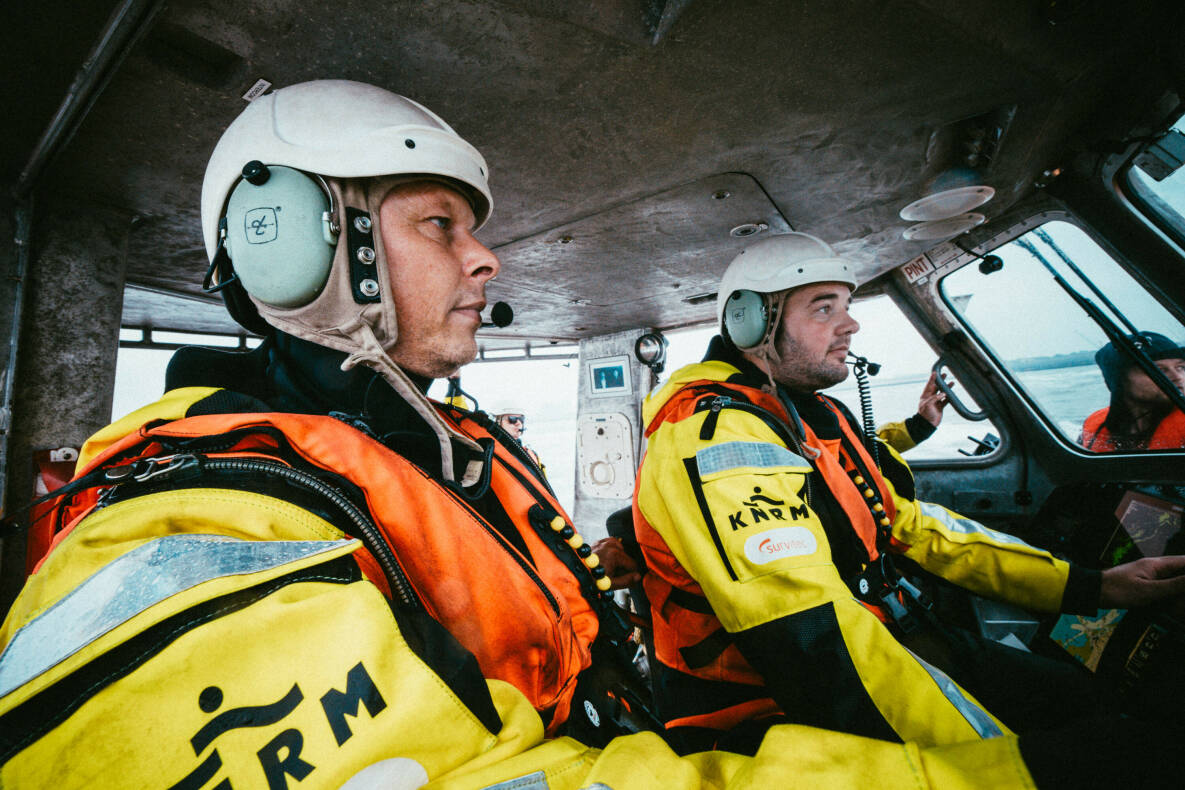
There is something special about working for an organisation that has been around for 200 years. Today, the Royal Dutch Rescue Society (KNRM) is still about the same core values as then: volunteers who put their heart and soul into saving others, without expecting anything in return. The idea that we set sail without even knowing who we are helping, and that the rescued do not have to pay anything, makes our work unique.
What I have always found impressive is that, as KNRM, we do not send a bill. Our work is entirely funded by donors, foundations and companies, without a cent of government support. It feels special to be part of a system that has functioned this way for two centuries.
For me, every successful rescue starts with good preparation. You have to know exactly what you are going to do, have the right tools and be mentally sharp. Our actions often take place in situations where we have to improvise. So it is important to practice so that you do not get distracted by uncertainties or unexpected problems. If you are well prepared, you can improvise and react to anything that comes your way.
We therefore train our volunteers intensively. For instance, we practise escaping from a helicopter underwater and do capsize exercises. The great thing about these exercises is that when things really go wrong, your body automatically falls back on what you have learned. That makes the difference between success and failure.

Join Work Safely at Sea and help us spread the important message about safety further. We are looking for companies, ships, and workers to share their experiences. Your story can inspire others and make them aware of the crucial role safety plays in our work. Whether you have a success story or a lesson learned from a near miss, your contribution can make a difference. Fill in the form and join our mission to make the sea a safer place to work for everyone
at Sea!
een veilige en productieve plek voor iedereen"
